
Kakata: The Heartbeat of Liberia's Hinterland
Kakata, often referred to as the 'Gateway to Liberia's Hinterland,' offers a unique blend of cultural richness and natural beauty. This bustling city is the administrative capital of the Margibi County and is known for its vibrant marketplaces, where locals sell everything from fresh produce to handcrafted goods. The city's warm and welcoming atmosphere makes it a must-visit for anyone looking to experience authentic Liberian life. Take a stroll through the streets of Kakata and you'll find a mix of modern buildings and traditional huts, painting a vivid picture of Liberia's past and present. The local cuisine is another highlight, offering a range of delicious dishes that reflect the diverse cultures of the region. Whether you're sampling spicy jollof rice or savoring fresh seafood, your taste buds are in for a treat. Kakata is also a great base for exploring the natural wonders of Liberia. The nearby Firestone rubber plantation, one of the largest in the world, offers guided tours that provide insight into the region's economic backbone. Additionally, the beautiful Kpatawee Waterfall is just a short drive away, perfect for a day trip filled with hiking and picnicking. With its rich history, friendly locals, and stunning landscapes, Kakata promises an unforgettable experience for any traveler.
Local tips in Kakata
- Visit the local markets early in the morning to experience the full vibrancy and get the freshest produce.
- Hire a local guide for a more in-depth experience of the Firestone rubber plantation.
- Carry cash as credit card facilities are limited in many places.
- Try the local dish 'jollof rice' at a street food vendor for an authentic culinary experience.
- Wear comfortable walking shoes as the streets can be uneven.
Kakata: The Heartbeat of Liberia's Hinterland
Kakata, often referred to as the 'Gateway to Liberia's Hinterland,' offers a unique blend of cultural richness and natural beauty. This bustling city is the administrative capital of the Margibi County and is known for its vibrant marketplaces, where locals sell everything from fresh produce to handcrafted goods. The city's warm and welcoming atmosphere makes it a must-visit for anyone looking to experience authentic Liberian life. Take a stroll through the streets of Kakata and you'll find a mix of modern buildings and traditional huts, painting a vivid picture of Liberia's past and present. The local cuisine is another highlight, offering a range of delicious dishes that reflect the diverse cultures of the region. Whether you're sampling spicy jollof rice or savoring fresh seafood, your taste buds are in for a treat. Kakata is also a great base for exploring the natural wonders of Liberia. The nearby Firestone rubber plantation, one of the largest in the world, offers guided tours that provide insight into the region's economic backbone. Additionally, the beautiful Kpatawee Waterfall is just a short drive away, perfect for a day trip filled with hiking and picnicking. With its rich history, friendly locals, and stunning landscapes, Kakata promises an unforgettable experience for any traveler.
When is the best time to go to Kakata?
Iconic landmarks you can’t miss
Libassa Ecolodge
Immerse yourself in nature at Libassa Ecolodge, a serene resort hotel in Liberia offering eco-friendly accommodations and stunning coastal views.
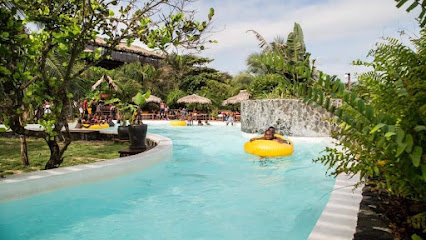
National Museum of Liberia
Discover the cultural heritage of Liberia at the National Museum, where history and tradition come alive in Monrovia's vibrant heart.
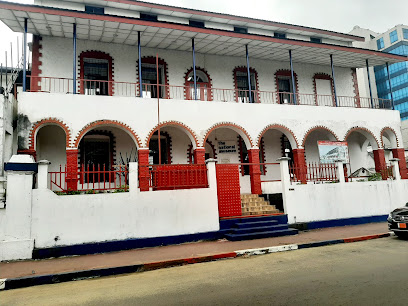
Kpatawee Waterfall
Explore the stunning Kpatawee Waterfall in Lawe, Liberia, a breathtaking natural attraction perfect for adventure seekers and nature lovers alike.
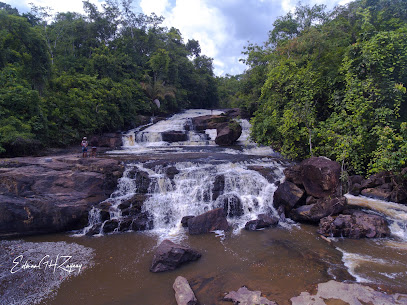
Wulki Farm
Discover the serene beauty and vibrant culture of Liberia at Wulki Farm, a tranquil retreat offering comfort and local hospitality in Uray Farm Community.
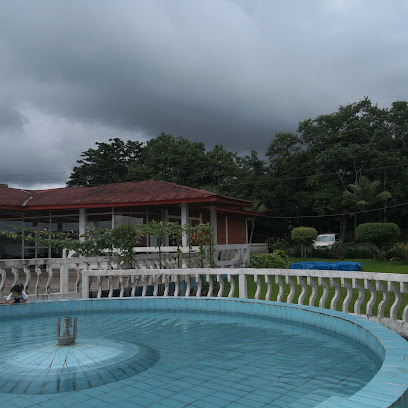
Grand Masonic Temple, West Benson Street, Monrovia, Liberia
Discover the Grand Masonic Temple in Monrovia, a landmark that embodies Liberia's rich heritage and Masonic traditions.
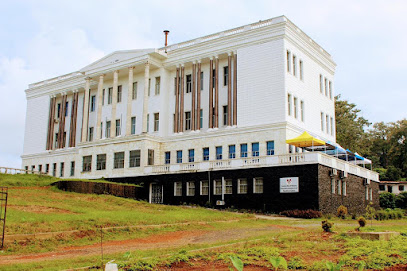
Joseph J. Roberts Monument
Discover the Joseph J. Roberts Monument in Monrovia, a rich historical landmark celebrating Liberia's first president and cultural heritage.
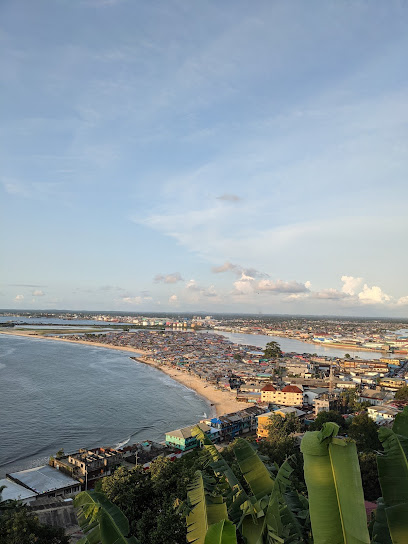
Kpatawee Waterfalls
Experience the natural beauty of Kpatawee Waterfalls in Dauma, Liberia, where adventure meets tranquility amidst stunning landscapes.
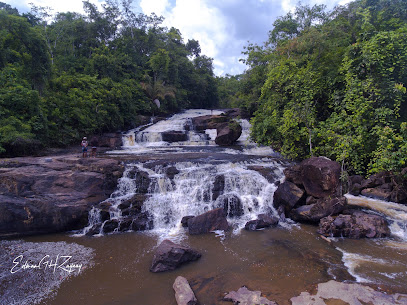
C H RENNIE HOSPITAL
Explore Kakata, Liberia, and discover C H Rennie Hospital, a key healthcare institution dedicated to serving the local community with quality medical care.
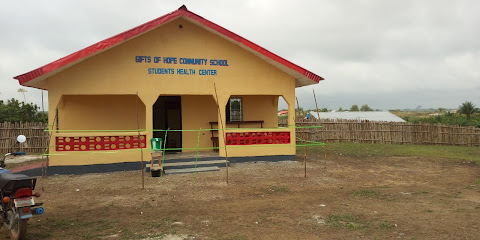
Matadi Central Mosque
Experience the serene beauty and architectural splendor of Matadi Central Mosque, a cultural gem in Monrovia, Liberia.
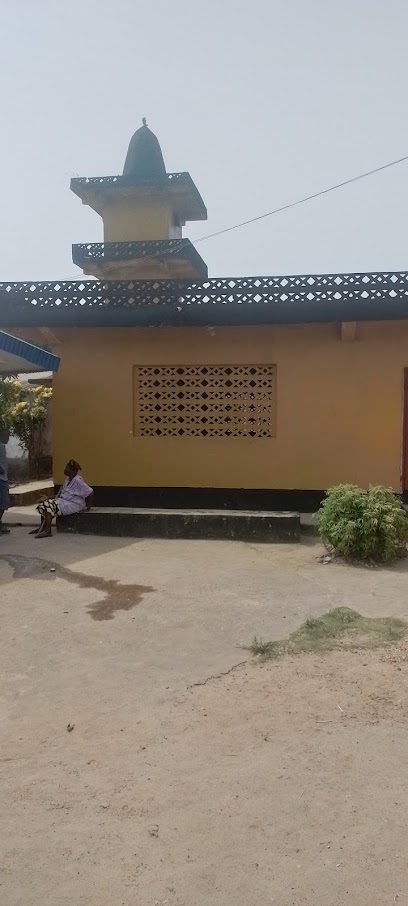
Kakata Liberia
Explore the vibrant culture and welcoming spirit of Kakata, Liberia's charming town rich in history and local life.

Wongan Falls
Explore the breathtaking Wongan Falls in Wiasohnbli, Liberia - a stunning natural attraction perfect for nature lovers and adventure seekers.
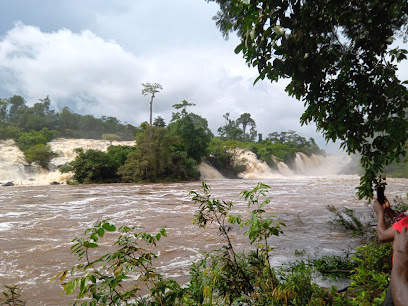
Kakata margibi
Discover unique home goods and local craftsmanship at Kakata Margibi, where every item tells a story of Liberia's vibrant culture.
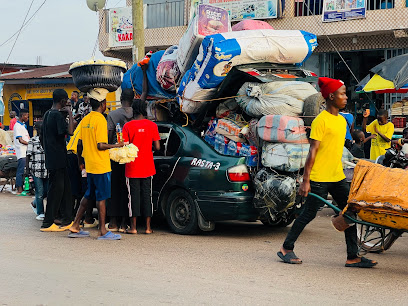
Joseph Jenkins Roberts Monument
Explore the Joseph Jenkins Roberts Monument, a symbol of Liberia's history and resilience in the heart of Monrovia, where the past and present meet.

Krangar Royal David
Explore Krangar Royal David, a historical landmark in Dabwe Town, Liberia, rich in cultural heritage and captivating stories that echo the past.
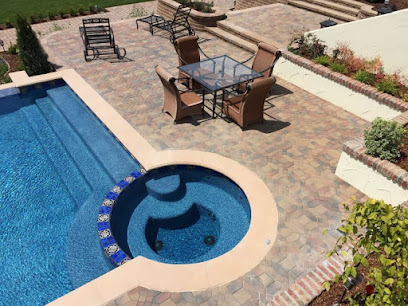
Gabriel Tucker Bridge
Explore the Gabriel Tucker Bridge in Monrovia for stunning views and a glimpse into the vibrant local culture of Liberia.

Unmissable attractions to see
Kpatawee Waterfall
Discover Kpatawee Waterfall: A breathtaking natural escape in Liberia's Bong County with eco-friendly lodging and unforgettable rainforest adventures.
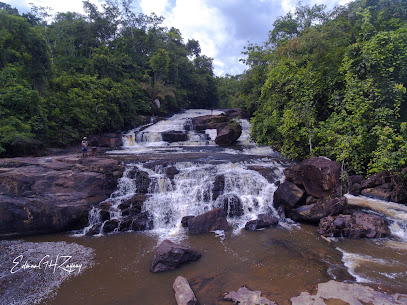
AfroBeach
Experience Liberia's vibrant culture and stunning coastline at AfroBeach Lagoon & Resort, a perfect blend of relaxation and entertainment.
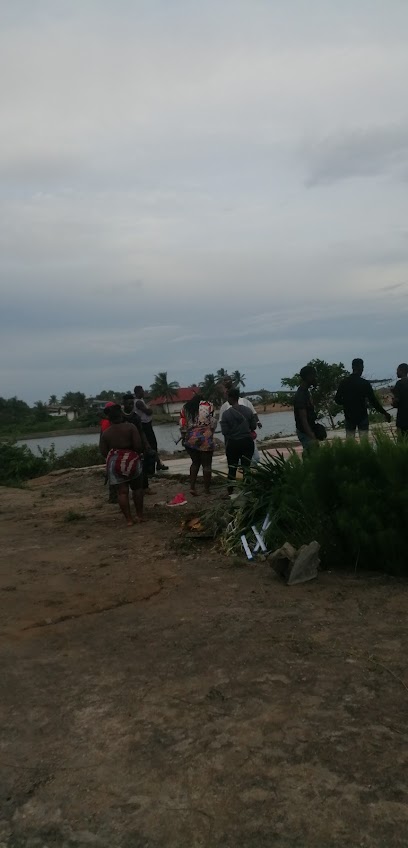
Matadi Central Mosque مسجد
Discover the Matadi Central Mosque in Monrovia, a serene cultural landmark showcasing Liberia's Islamic heritage and community spirit.
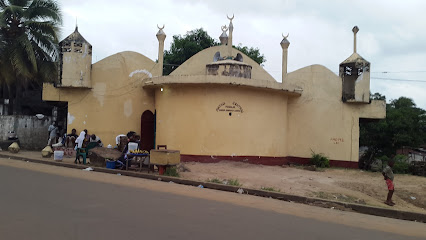
Sacred Heart Cathedral Church
Discover Monrovia's Sacred Heart Cathedral: A historic landmark showcasing stunning Gothic Revival architecture and offering a peaceful spiritual experience.
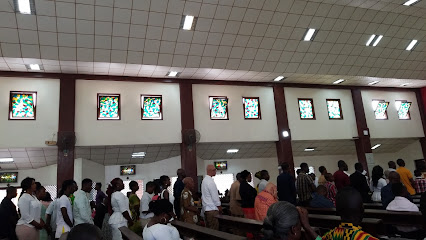
Duport Road Park
Escape to Duport Road Park: A serene Liberian oasis for relaxation, nature walks, and family fun in a peaceful setting.
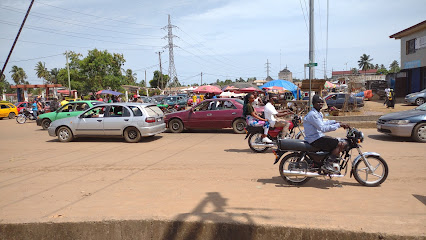
Second Chance Chimpanzee Refuge Island 1
Observe rescued chimpanzees in their natural habitat at this unique Liberian sanctuary, dedicated to conservation and animal welfare.
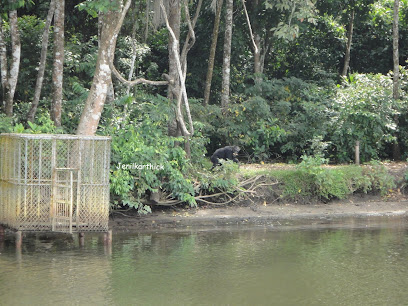
Stephen A Tolbert Estate First Park
Discover a peaceful oasis in Liberia: Stephen A. Tolbert Estate First Park, where nature and tranquility meet for a perfect escape.
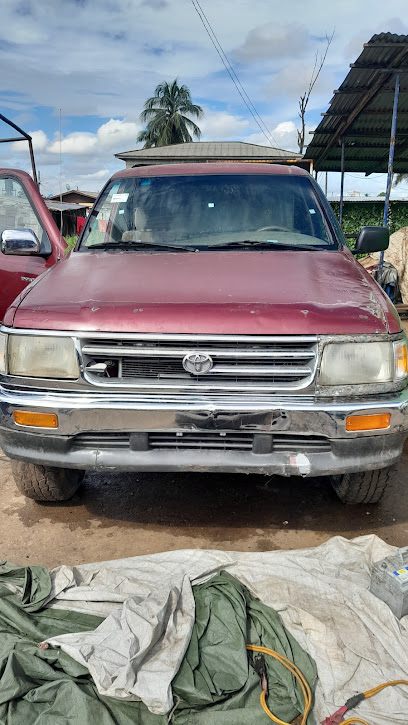
Bong Mine Blue Lake
Discover the stunning blue waters and serene landscapes of Bong Mine Blue Lake, a hidden gem offering adventure and tranquility in Liberia.

Riverside Sea View Golf Beach
Experience Liberia's coastal charm at Riverside Sea View Golf Beach: Golfing, beach relaxation, and local culture await!
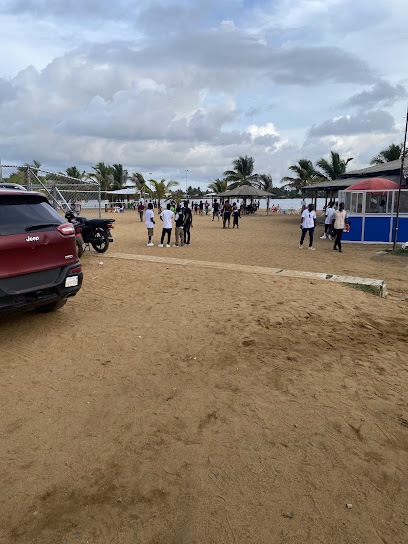
Chevron Park
Escape to Chevron Park: Monrovia's tranquil retreat with lush greenery, historical views, and family-friendly recreation.
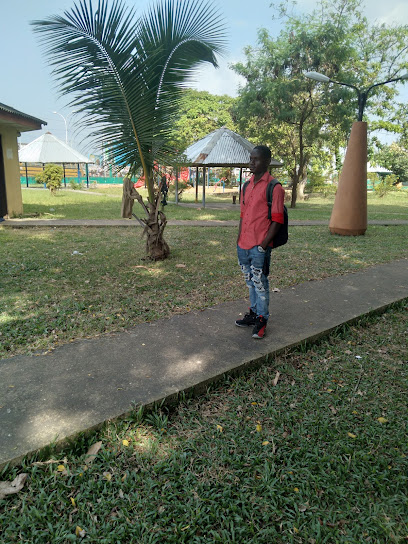
Stephen A Tolbert Estate Second Park
Discover tranquility and natural beauty at Stephen A. Tolbert Estate Second Park in Dabwe Town, a perfect escape for relaxation and recreation.
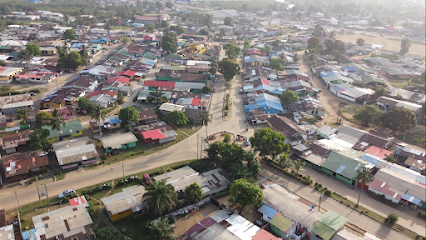
Clara tan
Escape to Clara Tan Park in Monrovia: A serene oasis of lush greenery, perfect for relaxation, picnics, and connecting with nature.

Wongan Falls
Discover Wongan Falls: An enchanting Liberian escape offering serene beauty, lush landscapes, and tranquil moments in nature's embrace.
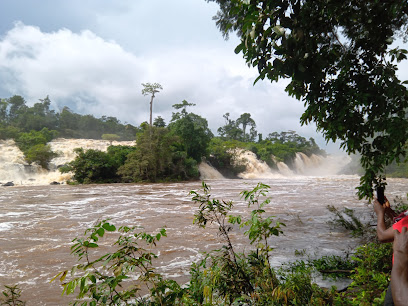
Second Chance Chimpanzee Refuge Island 4
Observe rescued chimpanzees in a natural habitat at this unique Liberian sanctuary, supporting vital conservation efforts.

Old U.S. Embassy Building
Explore the historic Old U.S. Embassy Building in Monrovia, a landmark reflecting Liberia's rich diplomatic heritage and architectural beauty.

Essential places to dine
FuZion D'Afrique Restaurant
Discover authentic African flavors at FuZion D'Afrique Restaurant in Monrovia—where every dish tells a story.
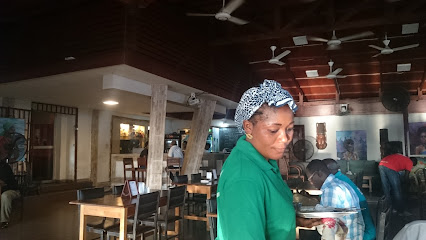
Sajj House
Experience authentic Lebanese flavors at Sajj House in Monrovia - where every meal tells a story.
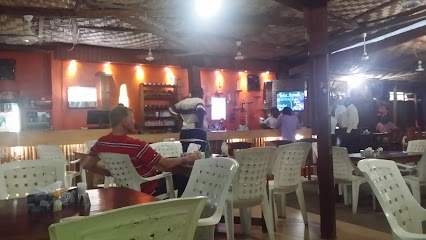
Diana Restaurant
Discover authentic Liberian flavors at Diana Restaurant in Monrovia—where every dish tells a story.
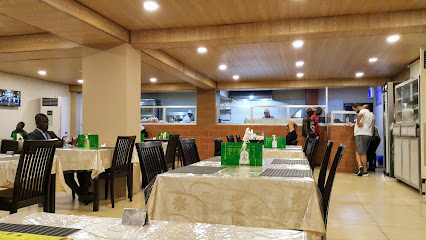
The Hub Diner
Experience the vibrant flavors of Liberia at The Hub Diner - your go-to spot for delicious local and international cuisine.
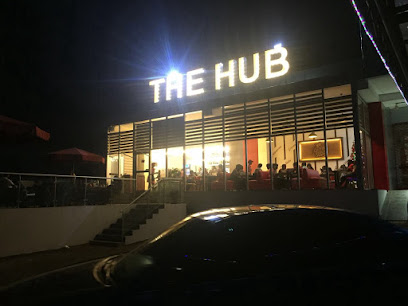
Rangoli Restaurant
Experience the vibrant flavors of Liberia at Rangoli Restaurant in Monrovia – where culinary tradition meets modern dining.
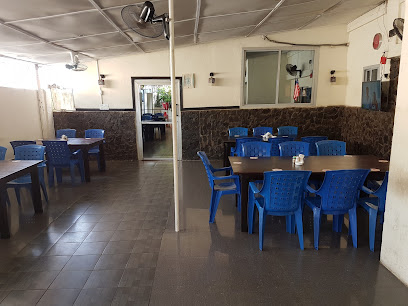
The Eatery
Experience the essence of Asia at The Eatery in Monrovia - where every dish tells a story of flavor and tradition.
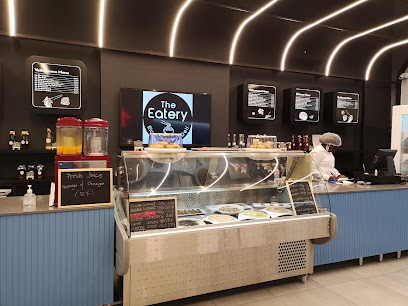
Terracotta
Experience the rich flavors of Liberia at Terracotta, Monrovia's premier restaurant blending local cuisine with international flair.
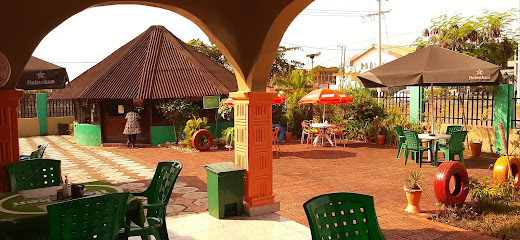
The Living Room Thai and Sushi
Discover authentic Thai cuisine and fresh sushi at The Living Room in Monrovia—where every meal is a flavorful journey through Southeast Asia.
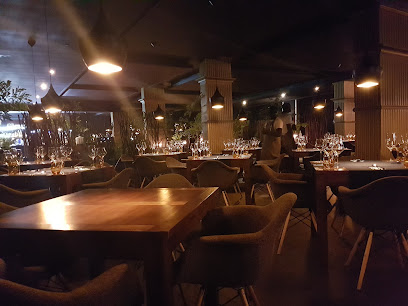
Mama Susu's Restaurant
Experience authentic Liberian flavors at Mama Susu's Restaurant in Central Monrovia – where every meal tells a story.
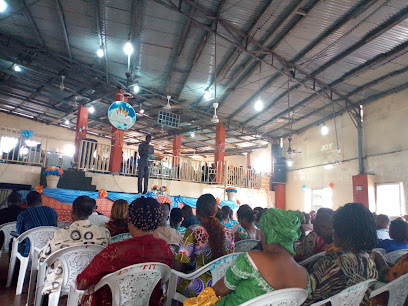
The Cape Restaurant
Experience the rich culinary heritage of Liberia at The Cape Restaurant in Monrovia - where every dish tells a story.
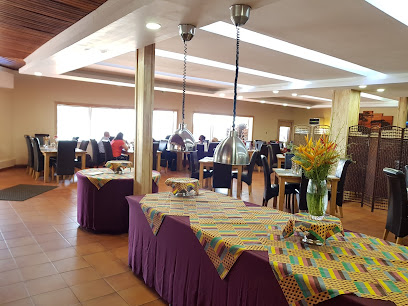
Ma Ju's & The Burger Spot
Experience the best burgers in Monrovia at Ma Ju's & The Burger Spot—where local flavors meet classic American cuisine.
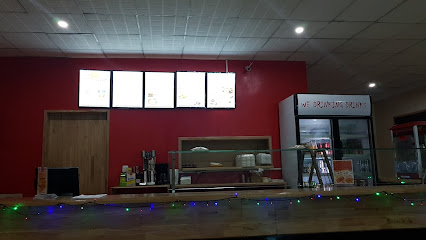
Riverside Bar & Restaurant
Discover authentic Liberian flavors at Riverside Bar & Restaurant with stunning river views in Monrovia.
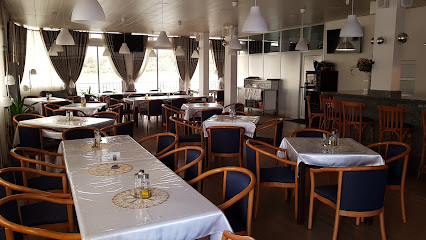
Pandora's Basket
Discover delicious local and international cuisine at Pandora's Basket in Sinkor, Monrovia - a must-visit culinary destination.
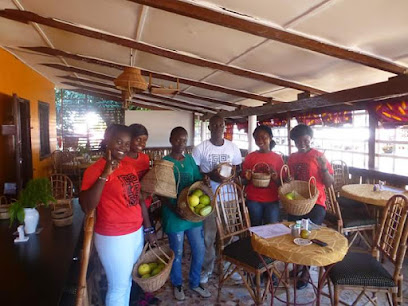
PA's Rib House
Discover the heart of Liberian cuisine at PA's Rib House - where delicious barbecue meets warm hospitality in Monrovia.
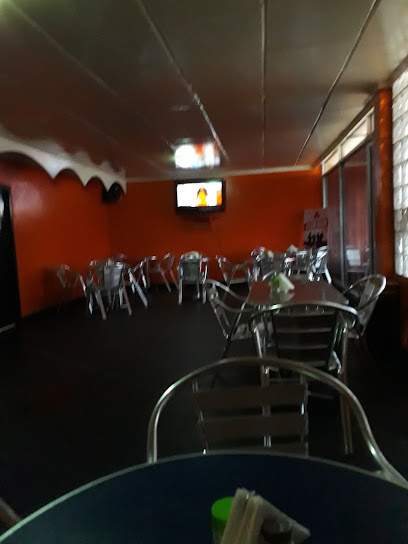
Let's Eat Dinner
Experience the rich flavors of Liberia at Let's Eat Dinner in Monrovia—a culinary delight for every traveler seeking authentic cuisine.
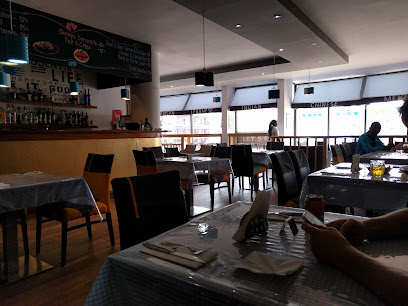
Markets, malls and hidden boutiques
A Plus ( A+ ) Boutique & Home Appliances .
Explore A Plus Boutique & Home Appliances in Monrovia for exquisite clothing and essential home appliances, showcasing the heart of Liberian creativity.
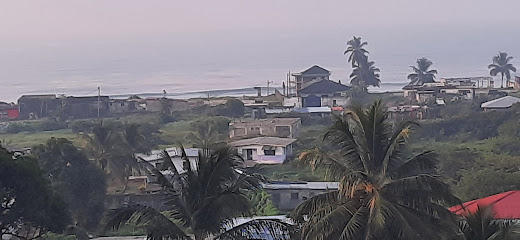
Ma-Nyanpu & Fasu Business Center
Discover a lively shopping experience at Ma-Nyanpu & Fasu Business Center, where local culture meets vibrant commerce in Kakata, Liberia.
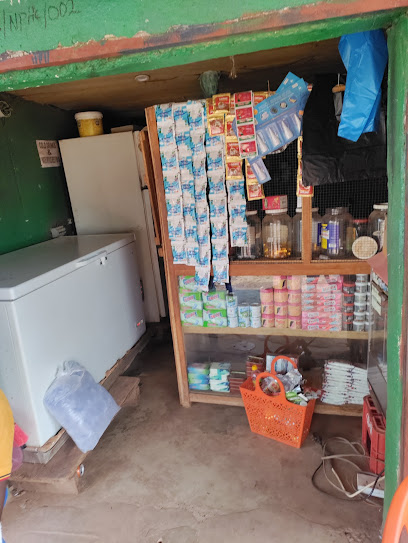
Mango Rags
Discover unique clothing and local fashion at Mango Rags, a vibrant clothing store in the heart of Monrovia, Liberia.
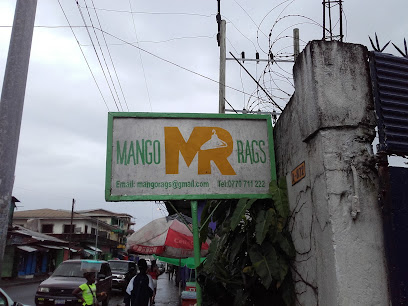
Style Couture Co.
Explore the vibrant fashion scene at Style Couture Co. in Harbel, Liberia, where elegance meets unique designer wear for every occasion.

Bettomax Kakata Shop
Dive into the excitement of betting at Bettomax Kakata Shop – a vibrant hub for sports enthusiasts in Liberia.

Barrie Kassa Business Center
Discover the vibrant shopping experience at Barrie Kassa Business Center in Kakata, Liberia - a blend of local culture and modern retail.
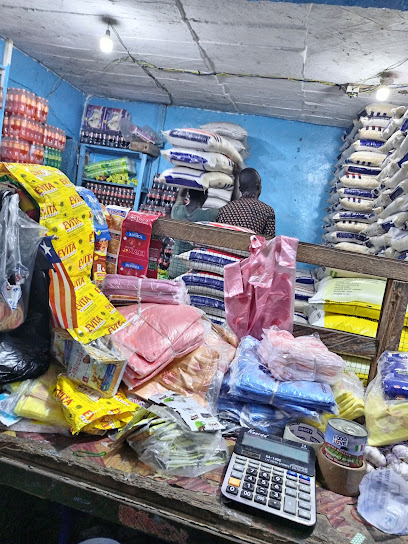
RULE ENTERPRISE
Discover Rule Enterprise, Kakata's premier shopping mall, offering a blend of local crafts, international brands, and delicious dining options for an unforgettable experience.
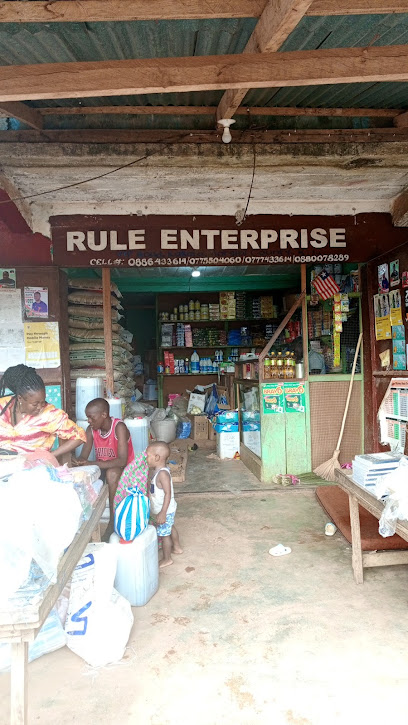
Kakata margibi
Discover the unique charm of Kakata, Liberia, a vibrant hub for home goods and local craftsmanship, perfect for tourists and culture enthusiasts alike.
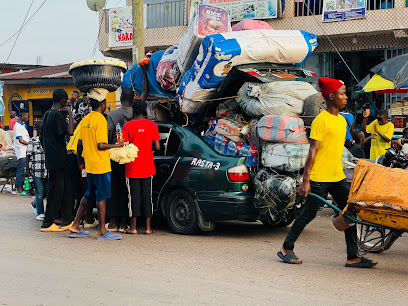
Ma Oretha Business Center
Experience the vibrant atmosphere of Ma Oretha Business Center in Kakata, Liberia, where shopping meets local culture in an unforgettable way.
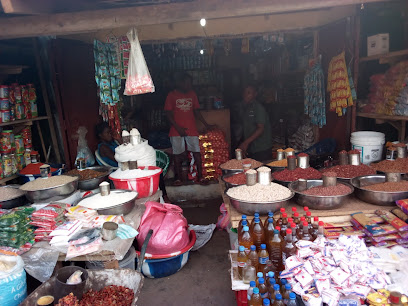
GFF Coldstorage
Explore the best of frozen delicacies at GFF Coldstorage in Kakata, Liberia, where quality meets local flavor.

OUR PRODUCTS
Explore vibrant fashion and unique styles at OUR PRODUCTS in Kpehe Town, Liberia, where local culture meets contemporary design.

Ali Building Material Store Br#6
Explore Ali Building Material Store in Kakata, Liberia - your ultimate source for quality building materials and expert assistance.
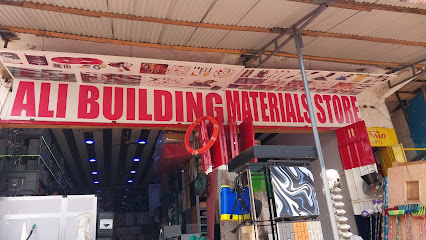
City Medicine Store
Discover the City Medicine Store in Kakata, Liberia – your trusted pharmacy for health essentials and friendly service during your travels.

D&G Beauty Supply
Discover the best beauty products at D&G Beauty Supply in Kakata, Liberia - your ultimate destination for hair care and cosmetics.

Ma Hawa Shop
Discover the lively atmosphere of Ma Hawa Shop in Kakata, Liberia – a perfect bar for drinks, music, and local culture.

Essential bars & hidden hideouts
Vibes Lounge &Grill
Discover the vibrant energy of Vibes Lounge & Grill in Monrovia, where delicious cuisine meets lively entertainment for an unforgettable experience.
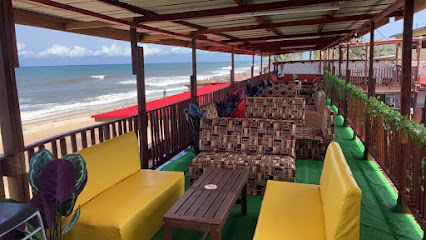
Kakata Kountry Klub
Experience the warmth and comfort of Kakata Kountry Klub, your perfect retreat in the heart of Liberia's vibrant culture and natural beauty.
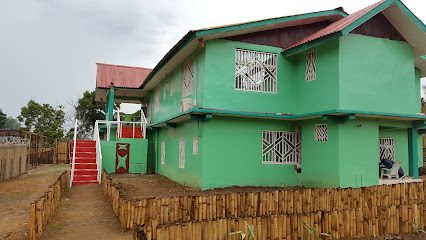
Kassco
Experience the rich flavors of Liberia at Kassco, the premier grill restaurant in Mills Center, offering mouthwatering dishes in a vibrant setting.
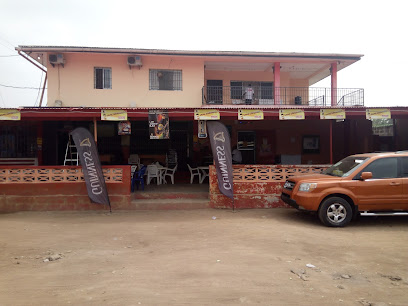
K T C
Experience the vibrant local culture at K T C, a charming bar in Monrovia offering a wide range of drinks and a friendly atmosphere.
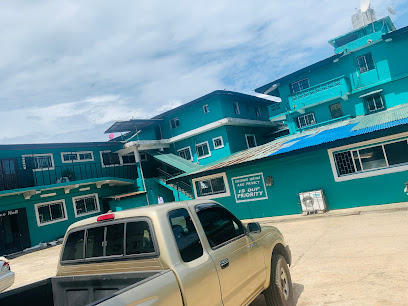
Kings & Queens Ent
Discover Kings & Queens Ent, a vibrant bar in Forh Town, Liberia, perfect for enjoying local drinks and the lively nightlife atmosphere.
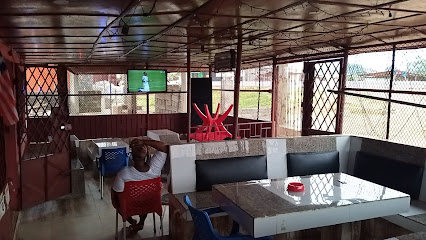
WIN-B bar
Experience the vibrant atmosphere and exceptional drinks at WIN-B Bar in OAU Village, a must-visit destination for any traveler.
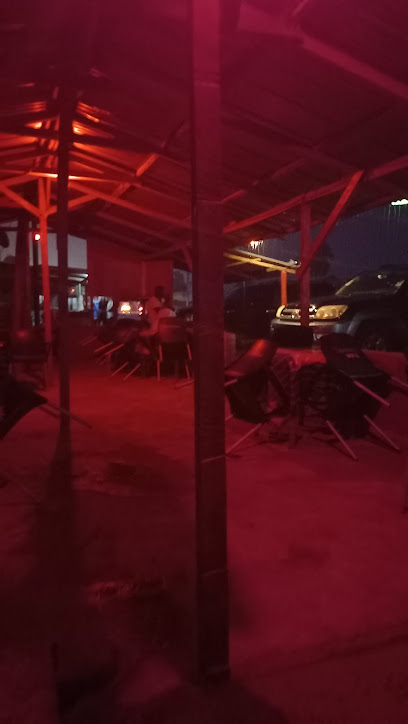
Vibes Bar, Grill & Boutique
Discover the culinary excellence and vibrant atmosphere at Vibes Bar, Grill & Boutique, your go-to destination for fine dining and local shopping in Monrovia.

Ma Hawa Shop
Discover the lively Ma Hawa Shop in Kakata, Liberia - a vibrant bar offering local drinks and a taste of authentic Liberian culture.

Jerry DORLOPIA HOME
Experience the heart of Kakata at Jerry Dorlopia Home, a vibrant bar where locals and tourists connect over delicious drinks and lively conversations.
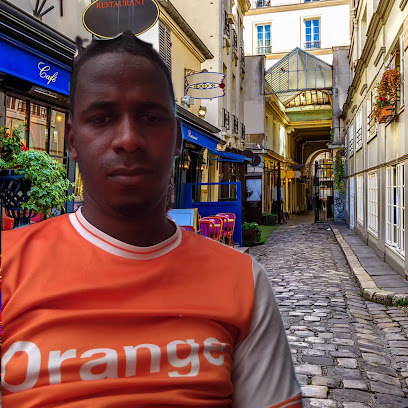
Multiple club
Discover the lively nightlife of Fisk Town at Multiple Club, where music, drinks, and good company create unforgettable moments.
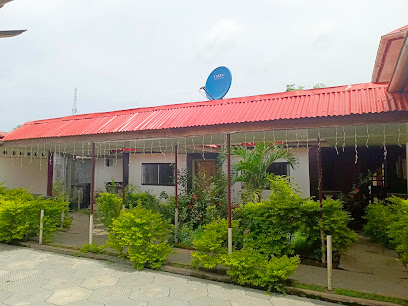
Kobazee Castle
Experience the unique charm of Kobazee Castle, a vibrant bar in Grayzohn, Liberia, where local culture and refreshing drinks await you.

The pub
Experience the vibrant nightlife at The Pub, a lively bar on Monrovia-Kakata Highway, perfect for enjoying drinks, local cuisine, and engaging entertainment.
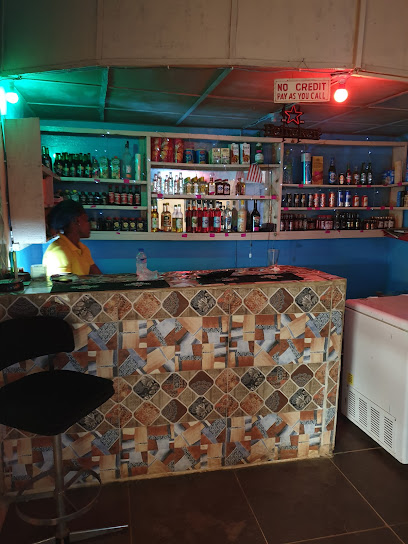
La Vista Bar and Restaurant
Experience the lively ambiance and diverse cuisine at La Vista Bar and Restaurant, a top destination in Monrovia for tourists seeking local flavors.
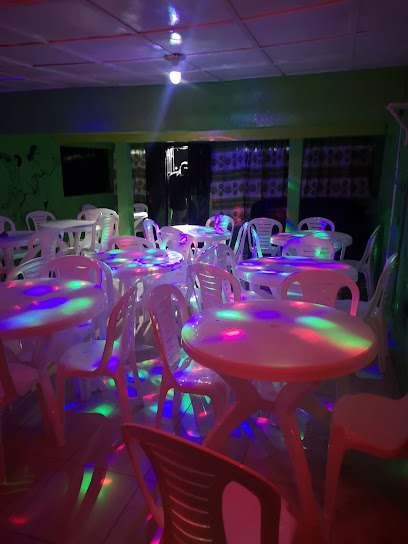
Kings and queens Bar & Grill
Experience local flavors and vibrant nightlife at Kings and Queens Bar & Grill in Monrovia, where culture and cuisine meet.

Local Phrases
-
- HelloSannu
[sah-noo] - GoodbyeTata
[tah-tah] - YesEhn
[ehn] - NoMba
[umb-ah] - Please/You're welcomeMba kene
[umb-ah keh-neh] - Thank youTenki
[ten-kee] - Excuse me/SorrySister
[sis-ter] - How are you?How da yu?
[how dah yoo] - Fine. And you?Fine. Yu kanda?
[feen. yoo kan-dah] - Do you speak English?Yu duh spek English?
[yoo doo spek ing-glish] - I don't understandI no sabi
[ee no sah-bee]
- HelloSannu
-
- I'd like to see the menu, pleaseI go kun menu, plees
[ee goh coon meh-noo, plees] - I don't eat meatI no dey chop meat
[ee no day chohp meet] - Cheers!Cheers!
[cheers] - I would like to pay, pleaseI go pay, plees
[ee goh pay, plees]
- I'd like to see the menu, pleaseI go kun menu, plees
-
- Help!Eh-yah!
[eh-yah] - Go away!Geh wey!
[geh way] - Call the Police!Kulu Polis!
[koo-loo po-lees] - Call a doctor!Kulu dokita!
[koo-loo doh-kee-tah] - I'm lostI loss
[ee loss] - I'm illI sik
[ee seek]
- Help!Eh-yah!
-
- I'd like to buy...I go buy...
[ee goh bahy...] - I'm just lookingI dey luk
[ee day look] - How much is it?Ehn ka how much?
[ehn kah how much] - That's too expensiveDis wan too kost
[dees wahn too cost] - Can you lower the price?Yu fit redi di price?
[yoo fit reh-dee dee price]
- I'd like to buy...I go buy...
-
- What time is it?How far clock?
[how fahr klok] - It's one o'clockNa wahn o'clock
[nah wahn o'clock] - Half past (10)Half past (10)
[half past (10)] - MorningMornin
[morn-in] - AfternoonAftanun
[af-tah-noon] - EveningIvinin
[ee-vee-neen] - YesterdayYesideh
[yeh-see-deh] - TodayTideh
[tee-deh] - TomorrowTomorow
[toh-moh-roh] - 1Wahn
[wahn] - 2Tu
[too] - 3Tri
[tree] - 4Fo
[foh] - 5Fayv
[fahyv] - 6Siks
[siks] - 7Sevin
[seh-veen] - 8Et
[et] - 9Nain
[nayn] - 10Ten
[ten]
- What time is it?How far clock?
-
- Where's a/the...?We de...?
[weh day] - What's the address?How de address?
[how day address] - Can you show me (on the map)?Yu fit show me?
[yoo fit show meh] - When's the next (bus)?When bus go cam?
[when bus goh kahm] - A ticket (to ....)Wan ticket (to ....)
[wahn ticket (to)]
- Where's a/the...?We de...?
History of Kakata
-
Kakata, a city situated in Margibi County, Liberia, traces its origins back to indigenous communities that inhabited the region for centuries. The area was traditionally occupied by the Kpelle people, who are known for their rich cultural heritage and agricultural expertise. The name 'Kakata' is believed to have derived from local dialects, signifying the area's deep-rooted connection to its indigenous past.
-
During the late 19th and early 20th centuries, Liberia experienced significant colonial influences despite being an independent nation. Kakata, situated along key trade routes, began to develop as a strategic location for commerce and governance. The construction of infrastructure, such as roads and administrative buildings, facilitated the city's growth and integration into the broader Liberian economy.
-
One of Kakata's most notable landmarks is the Booker Washington Institute (BWI), established in 1929. This vocational and technical school was named after the famous African-American educator Booker T. Washington. BWI played a crucial role in providing practical education to Liberians, focusing on agriculture, mechanics, and other trades, thereby contributing to the development of skilled labor in the country.
-
Kakata's strategic location made it a significant site during the Liberian Civil War, which spanned from 1989 to 2003. The city experienced periods of occupation by various factions, leading to disruptions and challenges for its residents. Despite the hardships, Kakata's community demonstrated resilience and adaptability, contributing to the broader narrative of recovery and reconciliation in post-war Liberia.
-
Kakata is a melting pot of cultures, reflecting the diverse ethnic groups that reside within its bounds. Traditional Kpelle music, dance, and ceremonies are integral parts of the cultural fabric. Annual festivals, such as the Kpelle New Year, are celebrated with great enthusiasm, showcasing the rich traditions and community spirit that define Kakata's cultural identity.
-
In recent years, Kakata has seen a surge in economic activities, driven by both agriculture and small-scale industries. The city's markets are bustling with traders selling a variety of goods, from locally grown produce to handcrafted items. Modernization efforts, including improvements in infrastructure and services, are ongoing, aiming to enhance the quality of life for Kakata's residents and attract more visitors to the region.
Kakata Essentials
-
Kakata is located in Margibi County, Liberia. The nearest international airport is Roberts International Airport (RIA), approximately 70 kilometers away. From the airport, you can take a taxi or arrange a private car hire to Kakata. The journey typically takes around 1.5 to 2 hours by road, depending on traffic conditions. Alternatively, you can take a shared taxi or minibus (kehkeh) from Monrovia, which is about 60 kilometers away, to Kakata.
-
Transportation within Kakata is primarily by motorbike taxis, known locally as 'pen-pen,' and shared minibuses (kehkeh). These are affordable and readily available. For longer trips or more convenience, you can hire private taxis. Walking is also an option for short distances, as the town is relatively small. Car rentals are available but not common, and the road conditions can be challenging.
-
The official currency in Liberia is the Liberian Dollar (LRD), but US Dollars (USD) are also widely accepted. Credit cards are not commonly used, so it is advisable to carry cash. ATMs are available in Kakata, but they may not always be reliable, so ensure you have enough cash on hand. Small denominations are preferred for everyday transactions.
-
Kakata is generally safe for tourists, but standard precautions should be taken. Avoid walking alone at night, especially in poorly lit areas. Be cautious in crowded places and keep an eye on your belongings. Areas with higher crime rates targeting tourists include the marketplaces and some of the busier streets. Always remain vigilant and aware of your surroundings.
-
In case of emergency, dial 911 for immediate assistance. Kakata has a local police station and medical facilities, including the C.H. Rennie Hospital. It is recommended to have travel insurance that covers medical emergencies. Pharmacies are available for minor health issues and over-the-counter medications.
-
Fashion: Do dress modestly, especially in religious or formal settings. Avoid wearing revealing clothing. Religion: Do respect local customs and traditions. When visiting religious sites, dress conservatively and show respect. Public Transport: Do be respectful to drivers and fellow passengers. Don't argue over fares; they are typically standardized. Greetings: Do greet people with a handshake. A friendly 'Hello' or 'Good morning/afternoon' is appreciated. Eating & Drinking: Do try local dishes and accept food offerings graciously. Don't refuse hospitality, as it is considered impolite.
-
To experience Kakata like a local, visit the local markets where you can buy fresh produce and traditional Liberian goods. Engage with locals, as they are often friendly and willing to share stories about the town's history and culture. Don't miss visiting the Kpatawee Waterfalls for a natural retreat. For a unique experience, attend a local festival or cultural event to immerse yourself in the community's traditions.
Trending Landmark in Kakata
-
Libassa Ecolodge
-
National Museum of Liberia
-
Kpatawee Waterfall
-
Wulki Farm
-
Grand Masonic Temple, West Benson Street, Monrovia, Liberia
-
Joseph J. Roberts Monument
-
Kpatawee Waterfalls
-
C H RENNIE HOSPITAL
-
Matadi Central Mosque
-
Kakata Liberia
-
Wongan Falls
-
Kakata margibi
-
Joseph Jenkins Roberts Monument
-
Krangar Royal David
-
Gabriel Tucker Bridge
Nearby Cities to Kakata
-
Things To Do in Monrovia
-
Things To Do in Buchanan
-
Things To Do in Gbarnga
-
Things To Do in Ganta
-
Things To Do in Kenema
-
Things To Do in Pujehun
-
Things To Do in Sanniquellie
-
Things To Do in Voinjama
-
Things To Do in Bonthe
-
Things To Do in Magburaka
-
Things To Do in Port Loko
-
Things To Do in Faranah
-
Things To Do in Daloa
-
Things To Do in San-Pédro
-
Things To Do in Conakry




